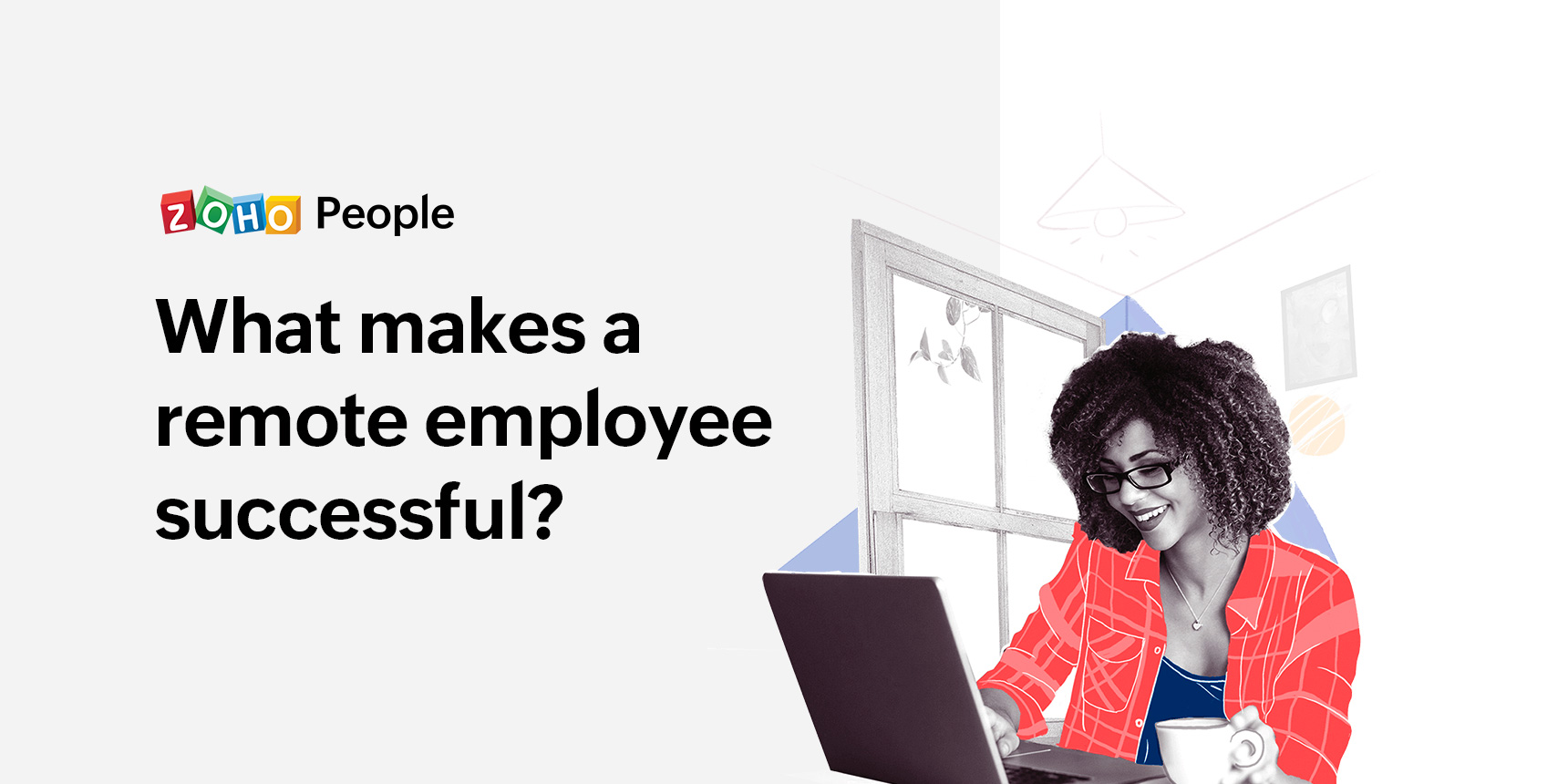- HOME
- HR insights
- 6 skills and traits of a great remote employee
6 skills and traits of a great remote employee
- Last Updated : August 23, 2023
- 1.5K Views
- 4 Min Read

Even after the end of the pandemic, many organizations are planning to adopt long-term remote work. A recent survey from Gartner has revealed that 74% of organizations are planning to shift 5% of their on-site employees to permanently remote positions. Additionally, 23% of surveyed organizations are planning to shift 20% of their on-site employees to permanent remote work. This begs the question: what does it take to be a successful remote employee? As an HR manager, how can you support your employees during this transition? It may be wise to start training programs that aim to strengthen the following skills in your remote workforce. Otherwise, employees may have a hard time trying to adapt to working from home permanently.
Here are some skills and traits that successful remote employees use to stay productive, happy, and engaged:
Communication
Excellent communication is by far the most important attribute that a remote employee needs because their peers, team members, and reporting managers would all be working from different locations. Without physical interactions, remote employees need to be more aware of the impression they make on others digitally. This means making their intents clear, ensuring that their voice is heard, listening carefully to others, and completing their work reliably. They need to be able to draft clear messages and emails, leaving no room for miscommunication. This puts more emphasis on written communication. They also need to find the right balance between over-communicating and under-communicating. Organizing a brief communication skills training for your remote employees can help them get off to a good start.
Self-motivation and discipline
Remote jobs are usually very flexible—sometimes too flexible. There's also the feeling of isolation and loneliness, the lack of a standard office environment, and other distractions to deal with. All of this can demotivate your remote employees and make them less productive. That's why they need to be self-motivated and disciplined enough to create their own schedule, define their working hours, and complete their tasks effectively without being constantly monitored. But don't worry if your employees don't have this strength built up right away. By fostering a culture of feedback, appreciation, and recognition, you can improve your employees' ability to be self-motivated. Also, when organizational goals are well-defined and efforts toward those goals are rewarded, employees will be motivated to achieve them faster, no matter where they work from.
Effective time management
While working from home, it's easy for your employees to slip away from their work to handle other tasks. In the long run, poor time management can leave your remote employees feeling overwhelmed because they'll be constantly juggling between professional and personal responsibilities without a break. This can damage their morale and self-confidence when it comes to work. Try educating your existing remote employees on the consequences of poor time management and best practices for implementing a productive daily routine. Encourage them to create a dedicated workspace to avoid distractions, and help them prioritize their work tasks, and set realistic deadlines. If they are still having trouble, encourage them to make a note of the total time they spend on each task. This will help them understand where most of their time goes.
Accountability
Accountability at the workplace is all about how well your employees take responsibility for their work and honor their commitments. Successful remote employees keep their word, don't let their work suffer, and deliver on what they promised. It can be incredibly challenging for reporting managers to push remote employees to finish their work. That's why accountability is a key trait that you need to build or look for in your remote employees. Setting clear expectations and helping employees understand the output they are responsible for can be of great help in the beginning. If this doesn't motivate them, it's good to set up a meeting to communicate and figure out a better way.
Adaptability
Several reports have predicted that disruptions are going to continue occurring in the work world for a while yet. That's why it's necessary to build an adaptive remote workforce to mitigate the impact of future disruptions. For instance, if your organization is introducing a new tech tool to make your business operations consistent with the prevailing market norms, your remote employees need to be able to adapt to the technology and start using it faster. To improve your employees' adaptability, analyze market trends continuously and provide ample training to help employees adapt to new technology, systems, or operations. Encourage your employees to seek out new ways to innovate and take calculated risks.
Problem-solving
As remote employees are scattered in different locations, they need to be independent when it comes to problem-solving and decision-making. Their peers or managers may not always be available to give clarity. Remote employees should be able to analyze the problem at hand, identify what led to such a situation, and take suitable actions to overcome the problem or mitigate its impact on your business. That's why it's necessary to create an autonomous work environment where employees are trusted with their decisions. Managers can help employees avoid mistakes by providing constructive feedback.
As organizations are moving closer and closer to a fully remote setup, it's necessary to equip employees with all the skills required to make remote work easier for them. This will motivate your remote employees to work better for your organization, thus improving its growth and success no matter where they work from. There's a chance that many of your employees already have some or all of these traits. If you're looking to incorporate more remote roles, don't overlook the employees who are already demonstrating a knack for this kind of work environment. Not only can they work remotely, but they can help train your other employees!
Also read: 5 tips for a long-term remote work strategy
 Tarika
TarikaContent Specialist at Zoho People


